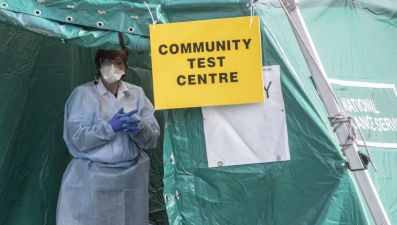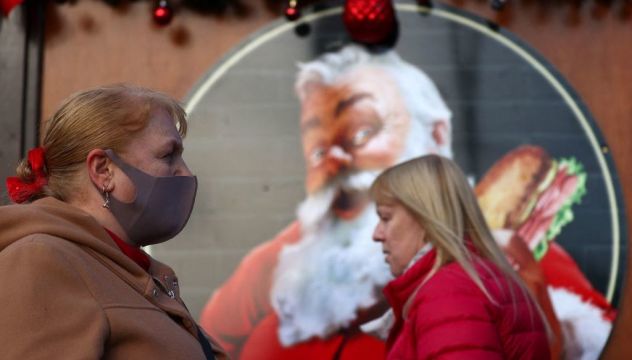Infectious diseases expert Professor Sam McConkey has called on people to isolate themselves if they are sick, even if they have had a negative PCR test result.
Other respiratory conditions and conditions such as diarrhea could have a serious impact on people, he warned.
Speaking on Newstalk radio, Professor McConkey pointed out that the Omicron variant has replicate rate of four which means that the number of cases is doubling every two to two and a half days, that meant that over 20 days the variant “goes up one thousand-fold” which he said was “was a frightening level of speed of rise.”
Ireland is now experiencing the same impact from Omicron as had already been experienced in the UK, Denmark and South Africa, he said.
While the good news from South Africa was that patients did not get “too sick”, in the UK the rate of hospitalisation with the Omicron variant had been 70 percent lower, but that still meant 30 percent could need to go to hospital.
The fact that the Omicron variant was “less pathogenic” in Denmark could be because of the high level of vaccination and previous infections “which means people are partially protected”, he added.
The levels of infection at present are mostly in those aged 20 years to 40 years, the concern now is that the variant would spread to older groups over the next few weeks, which could lead to high numbers in the first two weeks of January requiring hospitalisation and oxygen.
Future variants
Professor McConkey also warned that there could be more variants in the future which could be more pathogenic.
“We’re not out of the woods yet,” he warned, adding that the virus was not predictable.
The argument that Omicron should be let “run its course” was not valid, he said, because if widespread transmission was delayed by a week or two it would mean less pressure on the health service and more time for the expansion of the vaccination and booster programme.

According to Professor McConkey, with 90,000 to 100,000 people getting the booster vaccine on a daily basis, a two-week delay could mean one million people boosted.
“That’s one reason to follow Tony Holohan’s advice,” he said.
Hospitals need to be able to cope, not just with Covid, but also with road traffic accidents and conditions such as a burst appendix, he added.
Prof McConkey said that vaccine equity was not as big a problem in the developing world as it had been in the past because of Covax, the issue was going to be vaccine hesitancy because of “scare mongering” on social media on issues such as fertility which were untrue and unproven, he said.







